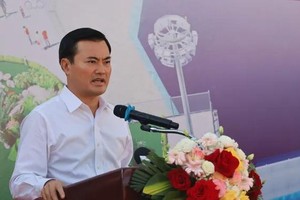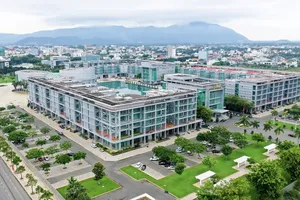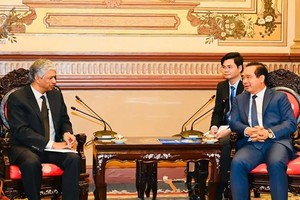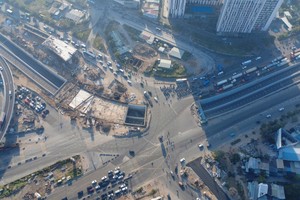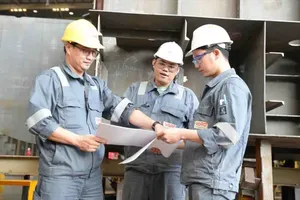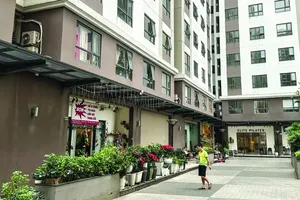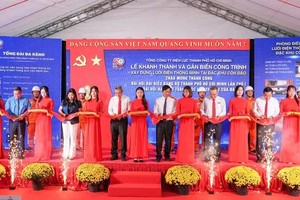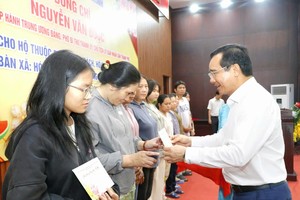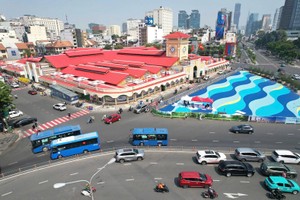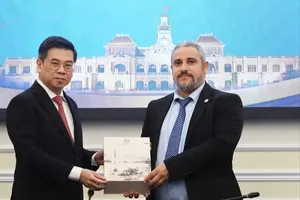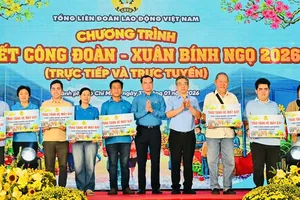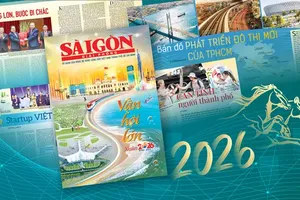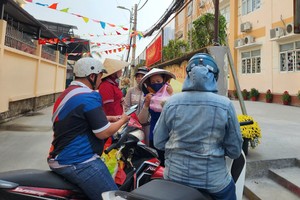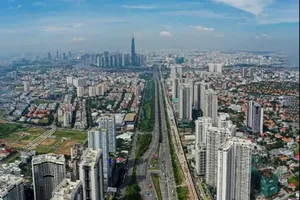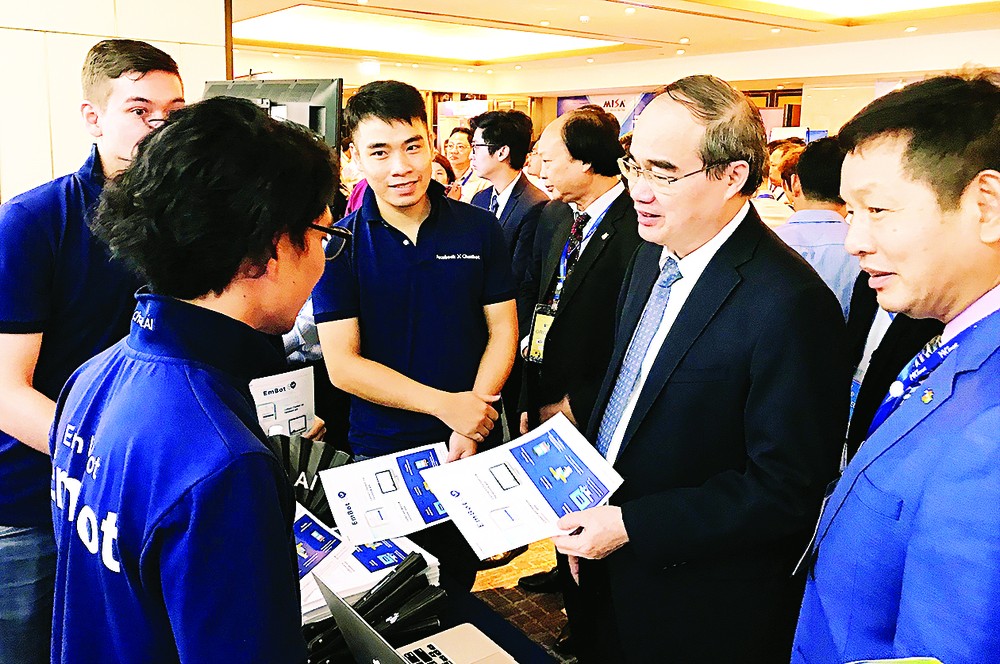
Stating at the conference, Politburo member, Secretary of the HCMC Communist Party Committee Nguyen Thien Nhan, said that HCMC together with other localities in Vietnam have many conditions to develop to be smart cities but face lot of challenges such as unstable competition.
In addition, infrastructure has yet to meet development demand, resources for socioeconomic infrastructure development are short, and localities have not well taken advantage of opportunities for regional connectivity and international integration to develop faster. There is a difference between urban modernization between HCMC and other large cities in the Southeast Asia region.
Amid that scenario, since 2016 city leaders have studied and determined to develop HCMC into a smart city in the phase of 2017-2025 with visions till 2030 and later on.
Both Singapore with the GDP per capita of US$50,000 a year and India with $2,000 have implemented smart cities, said Mr. Nhan.
He affirmed that HCMC will focus on carrying out two wing strategies while building smart cities including smart planning and smart industry management-smart citizens-smart businesses.
Talking about the smart city project in HCMC, director of the HCMC Department of Information and Communications Duong Anh Duc said that city leaders have determined four key solutions.
They comprise a municipal government that can give long term forecasts and development strategies to identify dangers and prevent congestions. The second solution is to have measures to assist the government, businesses, residents and social organizations to improve the efficiency of their operation models.
Thirdly, the city will strongly develop telecom infrastructure and a large database so that cyberspace can become a regular living space of each person. Fourthly, residents are the subject of smart city development process.
HCMC will build a common data warehouse, simulation and forecasting center to build socioeconomic development strategies, smart city management center and information safety center and propose to develop technology zone which will be a foundation to implement the smart city project.
The city will mobilize social resources and encourage local businesses to propose specific projects, invest in and rent out services to speed up IT application to implement the project.
Breakthrough development steps expected
Mr. Nguyen Thien Nhan said that the city always expects to obtain breakthrough development steps to rise up on a level with large cities of nations in the region.
HCMC has been building a smart city project to obtain the target and determined that is one of top important missions.
The project aims at ensuring economic growth and heading toward knowledge economy, improving living environment and working quality, improving the efficiency of urban governance, intensifying residents’ attendance in management to promote their brainpower.
The smart city will be developed in four principles with the first being corrected and throughout visions and high consensus. The second is always understanding people.
Thirdly, technology is development assistance tool and finally is mobilizing all resources to attend the project.
Dr. Eva Yi-Yuan Yueh, representative of the Asian-Oceanian Computing Industry Organization (ASOCIO), said that at present, Asocio has built a set of 55 norms to estimate smart cities, focusing on residents’ IT application, their reception to smart city, budget revenue and sustainable economic development. HCMC can rely on these norms to map out a suitable direction.
Delegates at the conference said that the smart city project will meet with four big difficulties including too large expenditure, information connectivity ability among agencies, no government’s encouragement policies and limited human resources.
Three solutions most chosen by delegates are that the Government should have mechanisms to encourage smart city development, Public Private Partnership model should be intensified and training and consulting courses should be organized.
